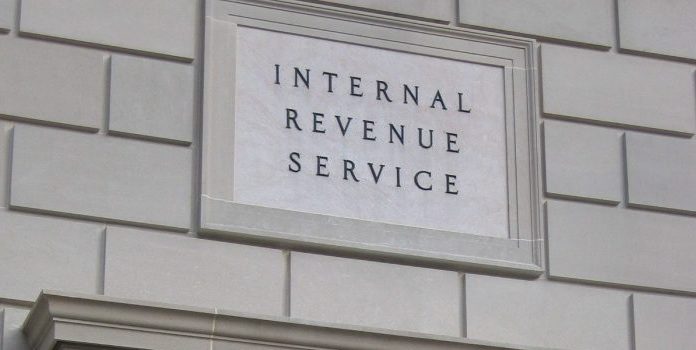(The Center Square) House Republicans held a meeting Tuesday to invite banking leaders to share their feedback on President Joe Biden’s proposed IRS monitoring program, which has been met with widespread disapproval and skepticism.
For months, Biden has looked to beef up IRS auditing to help fund several trillion dollars in Democrats’ proposed social spending. As part of that effort, the new proposal in question would require that banks hand over account information for Americans whose bank accounts meet a certain threshold. Initially, that threshold was accounts with $600 in transactions, though that threshold may now rise to $10,000.
Bankers testified about the proposal, raising a range of concerns including privacy and reporting requirements for banks.
“In my 28 years of banking, I’ve never seen our customers more concerned or upset by a policy idea in Washington than this plan to force banks to turn over significant amounts of additional information on our customers to the IRS,” said Jim Edwards, CEO of United Bank in Georgia.
“Reducing the tax gap is certainly a worthwhile goal, but unfortunately the administration’s approach simply casts too wide a net,” Edwards said. “And it’s my belief that it’s going to affect millions of ordinary, law-abiding taxpayers and put their privacy at risk.
“It will also impose new costs on community banks like ours,” he said, “and more importantly damage our bank-customer relationships that we have worked so hard to build at our bank over our 100-year history.”
Democrats argue the the plan will be used to catch wealthy tax cheats, but critics say it would capture sweeping data on millions of Americans.
Earlier this month, the IRS snooping scheme came under fire from 20 state attorneys general who said the proposed policy would allow the federal government access to nearly every American’s bank account.
“Despite their claims, Democrats are not targeting high-net income individuals or big corporations with the IRS surveillance,” House Ways and Means’ Republican Leader Kevin Brady, R-Texas, said. “They believe that it is families, farmers, and small businesses who are cheating on their taxes, and this is the way they believe they can go after them.”
Republican lawmakers have also said even with the changes, there are a number of ways Americans can find themselves on the wrong side of the IRS. They point to common activities, such as gig workers driving Uber, selling goods on Etsy or other online platforms, sending money to support a child or elderly parent, or carrying out large transactions such as car purchases or family vacations, saying all will likely require your bank to submit information to the IRS.
“In the end, this is still a dangerous invasion of your privacy. As little as $200 a week of spending could trigger IRS surveillance,” Brady said. “The grocery bill for an average family of four well exceeds that trigger for IRS surveillance.
“It’s especially frightening for hairdressers, plumbers, gig workers and anyone who earns their living outside a payroll system – they’ve got a big target on their back,” Brady said.
A range of banks, businesses, nonprofits and other groups have crticized the proposal. Even after Democrats suggested upping the threshold to $10,000, they have remained firm in opposition.
“If enacted, this new proposal would still raise the same privacy concerns, increase tax preparation costs for individuals and small businesses, and create significant operational challenges, particularly for community banks,” said Rob Nichols, president and CEO of the American Bankers Association.
“Given the IRS’s own recent history, the privacy and data security concerns for Americans are real and should not be taken lightly. That is why Americans across the country have expressed their strong opposition to this proposal,” Nichols said. “We firmly believe that everyone should honor their tax obligations, but this blunt instrument is not the right tool to solve this problem.”
Conservative groups point to the IRS Lois Lerner scandal, where the federal agency was caught targeting conservative groups. They warn this could happen again.
Last week, Treasury Secretary Janet Yellen defended the plan.
“At the core of the problem is a discrepancy in the ways types of income are reported to the IRS: opaque income sources frequently avoid scrutiny while wages and federal benefits are typically subject to nearly full compliance,” Yellen said.

